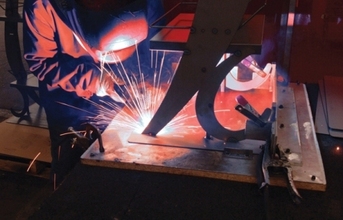
To strengthen their traditional business and to open up new sales markets, metal fabrication manufacturers need to mature in their understanding about customer experience and better grasp the vital role that modern enterprise resource planning (ERP) plays. One approach is to revise the entire value chain from production to management. Flexible, industry-oriented ERP can help to automate routine operations, reduce raw material and energy costs, and improve performance and customer satisfaction levels.
A recent IDC Manufacturing Insight white paper recently revealed that there is a big gap between companies with a mature or immature customer experience strategy, which directly influences their competitiveness. The white paper highlights that while the majority of metal fabrication manufacturers agree that improved customer experience is increasingly important to generating growth and higher profitability, they do not have a clear understanding of how to enhance their overall customer experience, the critical business benefits it can deliver, and the central role technology can play in providing a superior customer experience.
Unique challenges
Companies in the metal fabrication sector face a unique set of challenges within the manufacturing industry. Many metal fabrication manufacturers are moving away from producing standard, catalogue-based items to instead manufacture items to custom orders. This suddenly means that no order is the same and customer service becomes absolutely paramount.
A manufacturer's ability to deal with prospects and customers more efficiently, from product design to configuration and production, becomes essential to beating the competition and creating long term customer loyalty. Many still believe, however, that the single most critical factor for their customers to continue buying from them is only related to meeting their price expectations. They don't clearly understand the link between operational excellence and its impact on the customer.
The influence of this approach will clearly remain for a while, but leading metal fabrication manufacturers need to understand that factors such as concerns around supply reliability, poor product quality and long lead time, impact the customer experience negatively. We urge these manufacturers to work on improving their customer and market insight and address these critical operational factors head-on in order to grow their businesses.
|
